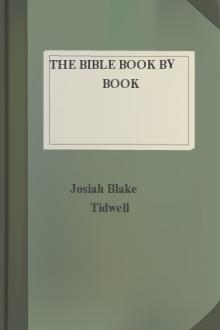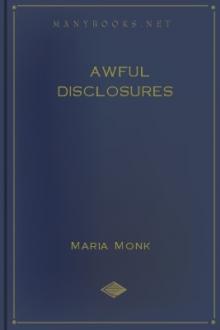Genre Philosophy. Page - 16
All entire books of the Philosophy genre on your device.

ach expresses eternal and infinite essentiality. Explanation-I say absolutely infinite, not infinite after its kind : for, of a thing infinite only after its kind, infinite attributes may be denied ; but that which is absolutely infinite, contains in its essence whatever expresses reality, and involves no negation.VII. That thing is called free, which exists solely by the necessity of its own nature, and of which the action is determined by itself alone. On the other hand, that thing is

cordingly: (1) The Strong one used 225 times in theOld Testament; (2) The Strong one as an object of worship; (3) TheStrong one who is faithful and, therefore, to be trusted and obeyed.This last is a plural term and is used 2300 times in the OldTestament. It is the name used when God said. "Let us make man" and"God created man in his own image," etc., Gen. 1:26-27. It was by thisname that God the Trinity covenanted for the good of man before manwas created.2. LORD. Small

ave himself from cipherdom, find an affirmative position. His thousand and three affairs of gallantry, after becoming, at most, two immature intrigues leading to sordid and prolonged complications and humiliations, have been discarded altogether as unworthy of his philosophic dignity and compromising to his newly acknowledged position as the founder of a school. Instead of pretending to read Ovid he does actually read Schopenhaur and Nietzsche, studies Westermarck, and is concerned for the

that faith is likewise about propositions; so that its object is something complex. I answer that, The thing known is in the knower according to the mode of the knower. Now the mode proper to the human intellect is to know the truth by synthesis and analysis, as stated in the First Part (Q. 85, A. 5). Hence things that are simple in themselves, are known by the intellect with a certain amount of complexity, just as on the other hand, the Divine intellect knows, without any complexity, things

secure society against oneof the most destructive but insidious institutions of popery; Americanfemales, an appeal to them of the most solemn kind, to beware ofConvents, and all who attempt to inveigle our unsuspecting daughtersinto them, by the secret apparatus of Jesuit schools. The author of thisbook was a small, slender, uneducated, and persecuted young woman, whosought refuge in our country without a protector; but she showed theresolution and boldness of a heroine, in confronting her

table. Our next chapter, therefore, will be concerned with the reasons for supposing that there is a real table at all.Before we go farther it will be well to consider for a moment what it is that we have discovered so far. It has appeared that, if we take any common object of the sort that is supposed to be known by the senses, what the senses immediately tell us is not the truth about the object as it is apart from us, but only the truth about certain sense-data which, so far as we can see,

gh the subject consciously wishes to be hypnotized. Unconsciously, there may be a poor interrelationship with the hypnotist which can create an unfavorable climate for hypnosis. When this is the case, the subject doesn't respond until such time that he relates well to the hypnotist. Even the most calculated procedures will fail until a positive transference relationship is established. I am sure that you sometimes have said, "For some reason I don't like that person." If pressed for

nt pasture for dairy-farming and water-power for both tramway and funicular, and where the necessary capital could be borrowed; and the other one hunted about for marks of stratification and upheaval, and ransacked his memory for historical data about the various tribes originally inhabiting that country."I suppose you're a painter and regretting you haven't brought your sketching materials?" said the scientific man, always interested in the causes of phenomena, even such trifling

ti, which is intouch with each one of the four globes and a part of it. Thesame is true of any aggregation of prakriti--of the earth itselfand of all things in it, including man. As there are fouratoms in each one, so there are four earths, four globes,consubstantial, one for each of the four elements, and in touchwith it. One is formed of prakritic atoms--the globe we know;another, of the ether forming their envelopes; another, of theprana envelopes of ether, and a fourth of the manasa around

veloped and brought forth, like the culture of that obstinate but beautiful flower, the orchid. To allow it to remain dormant is to place one's self in obscurity, to trample on one's ambition, to smother one's faculties. To develop it is to individualize all that is best within you, and give it to the world. It is by an absolute knowledge of yourself, the proper estimate of your own value.""There is hardly a reader," says an experienced educator, "who will not be able to